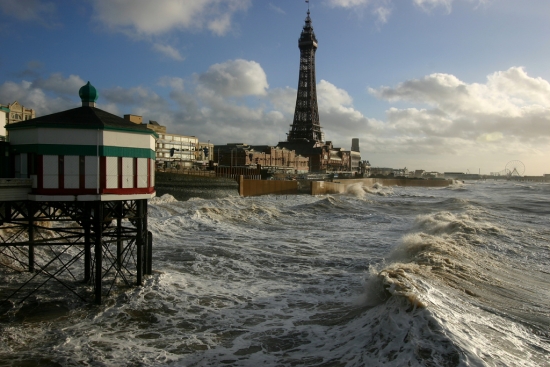With efforts to rejuvenate the high street in full swing, and the recent spate of good weather providing a welcome boost to consumer confidence, one would be forgiven for assuming that this summer has been one of the best in recent history for coastal towns. However, statistics released this week from a report conducted in 2010 have shown that this, unfortunately, could not be further from the truth.

According to the report, coastal towns in the England suffer from almost 27 per cent deprivation levels, with 25 of the country’s larger resorts registering higher than average levels. Blackpool is currently the resort with the highest level of deprivation, although both Hastings and Clacton are not far behind.
Factors such as crime, unemployment and poor health were all taken into account when collating the results, indicating that both the towns and their residents have suffered from a significant drop in tourism since their heyday. The Centre for Social Justice blamed this phenomenon on the high availability of cheap foreign holidays offered by budget airlines and travel firms, which it claims have turned traditional British holiday destinations into “dumping grounds”.
In order to qualify for inclusion into the report conducted by the ONS, resorts must have had a resident population of at least 15,000. This ruled out many popular resorts in areas such as Cornwall, because although their populations swell in the summer months this is largely due to tourism and as such is not an indicator of deprivation levels.
In total, 57 resorts were investigated by the ONS, including Blackpool, Brighton and Bournemouth. While Blackpool registered highly on the deprivation scale of “large” resorts – areas with a population of over 40,500 – smaller resorts such as Skegness and Ingoldmells showed worryingly high levels of deprivation, indicating that these once popular destinations have fallen firmly out of favour with the jet-setting British public of today.
However, the ONS also showcased the fact that areas of high deprivation are, quite literally, rubbing shoulders with some of the most prosperous in the country. For example, Blackpool is only a short distance from Lytham St Annes, a resort particularly popular with golfers thanks to Open Championship course.
Therefore, it certainly seems that geographical location has little to do with the deprivation plaguing seaside towns.
Fortunately, it seems that the government has recognised the problem and is now taking steps to rectify the situation. According to a spokesman for the Treasury, investment in deprived seaside areas has now become a priority.
He said; “There is huge potential for our coastal towns to welcome new industries and to diversify their economies so they can become year-round success stories.
“The Government’s Coastal Communities Fund was set up in 2011 to help these towns tap into new business opportunities that will create jobs and boost skills that benefit the whole community.”
Do you think investment for businesses in coastal towns will improve the situation, or is the root of the issue high crime levels and competition from foreign resorts?
Previous Post
What are the Possibilities of 3D Printing?